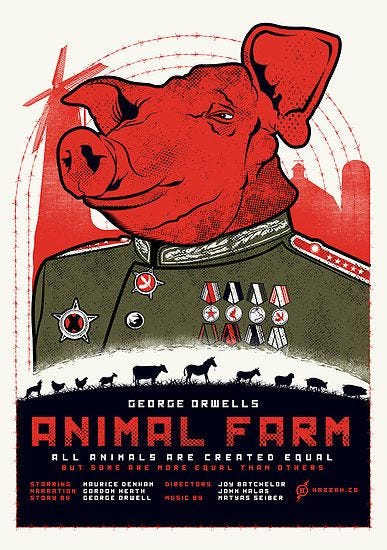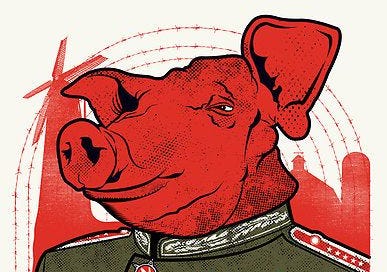Animal Farm in Reverse

Orwell’s Animal Farm parodies Soviet propaganda:
On Sunday mornings Squealer, holding down a
long strip of paper with his trotter, would read out to them
lists of figures proving that the production of every class of
foodstuff had increased by two hundred per cent, three hundred
per cent, or five hundred per cent, as the case might be. The
animals saw no reason to disbelieve him, especially as they could
no longer remember very clearly what conditions had been like
before the Rebellion. All the same, there were days when they
felt that they would sooner have had less figures and more
food.
The point: In a totalitarian state, there’s a chasm between daily life and the media. Daily life is awful, but the media trumpets the glory of the status quo.
The West now has a comparable chasm between daily life and the media, but it goes in the opposite direction. Daily life is wonderful: Unless you actively hunt for outliers, you’re surrounded by well-fed, healthy, safe, comfortable people enjoying a cornucopia of amusement. The media, however, uses the vastness of the world to show us non-stop terror, hate, fear, brutality, and poverty – not just in the Third World, but right here at home.
Why would the media strive to make audiences doubt their own two eyes? In the Soviet Union, the explanation is obvious: The Party used its media monopoly to brainwash its citizens into accepting, if not relishing, their wretched existence.
It’s tempting to tell a mirror image story for the West: Hostile journalists seek to undermine a glorious world they hate. But even if these cartoonish motives were operative, Western media is manifestly competitive, so you have to ask, “Why hasn’t competition stopped the brainwashing?” The only credible response is that media consumers like hearing about a world of terror, hate, fear, brutality, and poverty.
I can’t fathom why anyone would crave a daily dose of this intellectual poison, but see no other explanation for our Orwellian situation.
The post appeared first on Econlib.




